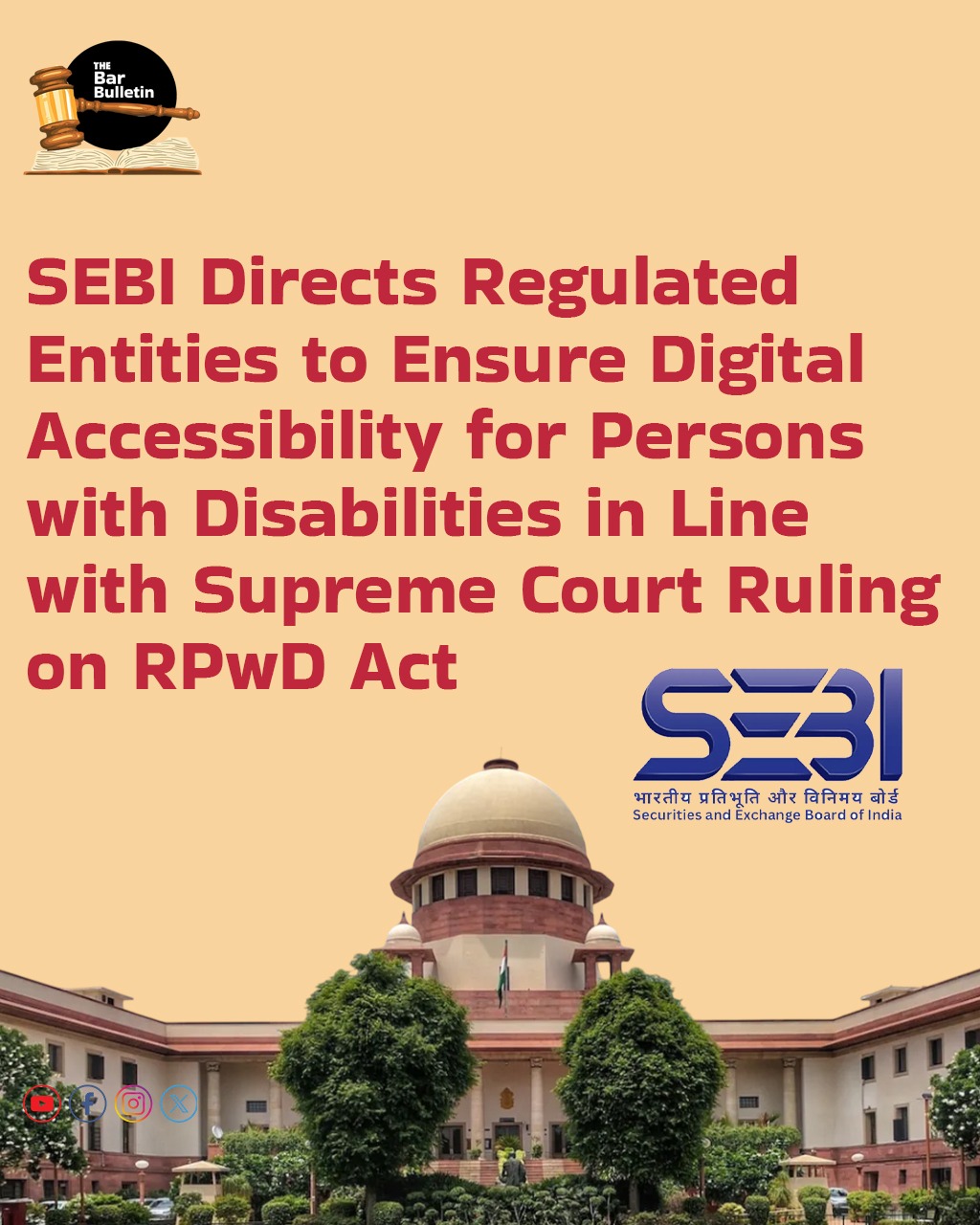The Securities and Exchange Board of India (SEBI) vide its Circular dated July 31, 2025, has mandated that all its regulated entities (REs), including stock exchanges, depositories, and various intermediaries, must ensure their digital platforms are accessible to persons with disabilities.
Recently, while disposing off the petitions seeking formulation of appropriate rules and guidelines for conducting Digital Know Your Client (KYC) /e-KYC/video KYC with a view to ensure that the process is more accessible to all persons with disabilities in accordance with the provisions of the Rights of Persons with Disabilities Act, 2016 (RPwD Act), the Supreme Court, in its judgment in the matter of Pragya Prasun & Ors. Vs. Union of India [WP(C)/289/2024] and Amar Jain vs. Union of India & Ors. [WP(C)/49/2025] pertaining to Digital Accessibility for persons with disabilities, has held that the right to Digital Access is an intrinsic component of right to life and personal liberty.
Therefore, in line with the judgment of the Supreme Court dated April 30, 2025, SEBI has directed its efforts towards strengthening the accessibility of Digital Platforms in the securities market, and to uphold the rights of people with disabilities and promote an inclusive digital ecosystem in the Indian Securities Market.
The Circular requires REs to comply with specific sections of the Rights of Persons with Disabilities Act, 2016, and related rules. Essentially, Section 40 of RPwD Act, 2016 discusses accessibility; Section 42 talks about access to information and communication technology; and Section 46 ensures time limit for accessibility by service providers.
To ensure compliance, the REs must submit a list of their digital platforms, appoint an IAAP-certified accessibility professional as an auditor within 45 days, and conduct a full accessibility audit within three months. Any identified issues must be remediated within six months.
The circular also provides a framework for ongoing compliance reporting, institutionalizing a grievance redressal mechanism, and ensuring that new digital solutions and procurement processes adhere to digital accessibility standards, such as WCAG 2.1 and GIGW.



